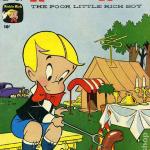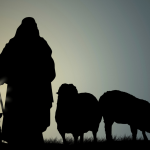Good News: Grace and hope to collide in spring
Fifteen months ago, while traveling in Africa, I met a boy named Vasco Sylvester and fell in love.
He was 9 years old, although at the time I wasn’t sure exactly how old he was.
Vasco is an orphan — both his parents died of AIDS. He was living in a mud and wattle hut on the outskirts of Blantyre, Malawi, one of the poorest nations on Earth.
Several years before, a caseworker named Mac from a charity in Blantyre discovered Vasco living on the street, as so many of the country’s AIDS orphans sadly do.
My husband and I met Vasco during a three-day visit to Blantyre. We could tell immediately that something was wrong with the sweet, soft-spoken child. He was the same age as an American fifth-grader, but he was the size of a typical kindergartner.
Vasco’s heart beat so violently we could see his narrow chest move through the T-shirt he was wearing — the one emblazoned with a dove and the word “Chisomo.” He was out of breath and perspired in the shade, even though he’d been sitting still.
“He has a hole in his heart,” Mac told us.
When we left Malawi, I felt as if my soul was splitting in two. We’d already spent a few weeks in Africa before arriving in Malawi and had met dozens of other orphans and children in need.
Why this child and not another?
I don’t know. Why does anyone fall in love with anyone else?
All I knew for certain was that I had to listen to that ache in my spirit. I had to do something.
There is a saying from the Talmud: “Save one life and you save the world entire.”
We can’t do everything. But what we can do, we must.
As the plane took off from Blantyre, soaring low over the city, I thought how similar it was to the view I’ve seen dozens of times as flights have taken off from O’Hare. Looking down at the shacks, houses and office buildings, I was struck by how unfair Vasco’s situation was.
The only reason he might die an early death is because he is poor and African.
Were he a child in the United States — even the poorest child — Vasco would have access to the kind of health care that could fix his broken heart.
The injustice was gut-wrenching. I sobbed angrily from Malawi back to Tanzania and pledged to myself — and to God — that I would do whatever I could to help Vasco.
I couldn’t fix his heart myself, but I could tell his story. So, when I returned to Chicago, I wrote a column.
The response from readers was extraordinary. Dozens of people called and wrote asking what they could do to help. You offered to donate money, plane tickets and immigration assistance. And you offered your prayers.
Doctors from three Chicago hospitals came forward offering to treat Vasco for free. We just needed to get him here.
That was November 2007. I figured Vasco would be in town for treatment by that Christmas.
But that’s not how these things work. At least not in real life.
With Mac’s help, we tracked down Vasco’s birth certificate in Malawi and learned that he was born Oct. 10, 1998, at Queen Elizabeth Central Hospital in Blantyre. Then Mac was able to get a passport and permission for the child to leave the country for treatment. Things were going smoothly.
But the doctors here — part of a team of pediatric cardiologists from the Heart Institute for Children who work at Hope Children’s Hospital, Mount Sinai Hospital and the University of Illinois Hospital — said before they could commit to helping Vasco, they needed to determine whether there was anything they could do medically to help him.
That meant having the boy evaluated by a cardiologist in Malawi, which was far easier said than done. It took weeks to track down a pediatric cardiologist and months before the doctor was able to secure the right equipment to examine Vasco thoroughly and record the diagnostics on a DVD so doctors in Chicago could review them.
The first DVD, which arrived here late last spring, was cracked and unreadable.
Maddeningly, we had to start the diagnostic process in Malawi all over again.
The second DVD of Vasco’s echocardiogram arrived in early December — more than 12 months after we met the boy in Blantyre. We gave it to a cardiologist friend who told us, just before Christmas, that he didn’t think there was anything that could be done to better Vasco’s health. At least not in any significant way.
We were devastated, but dutifully sent the DVD to the doctors at Hope, praying for a more encouraging second opinion. Just before New Year’s, we got a call asking to schedule a phone conference. My husband and I figured it would be a we-wish-we-could-help-but-we-can’t conversation.
The DVD contained a half-dozen short, shaky clips of the echocardiogram of Vasco’s heart, recorded by someone standing in front of the heart monitor with a hand-held video camera.
But it was enough for the doctors here, led by Dr. Andrew Griffin, head of the Heart Institute for Children, to give their verdict.
“We can absolutely help this child,” was the first thing we heard Dr. Griffin in the phone conference earlier this month. I almost dropped the phone.
“Vasco’s got a complicated disease but he’s at least moderately repairable and probably totally repairable,” Griffin said. “We’re looking at giving him basically a normal life.”
Vasco has what appears to be a complex congenital heart defect. But, Griffin said, he has two decent ventricles, and his pulmonary artery and aorta are functioning well enough that doctors in Chicago believe they can do surgery essentially to re-wire his heart so that it functions almost normally.
The kind of condition Vasco suffers from is genetic and not the result of malnutrition or other outside factors during his mother’s pregnancy.
God will provide
“It’s a rare defect, but we do see it,” Griffin said. “It occurs in about 1 in every 50,000 births. We will see a number of these children each year.”
So, at last, Vasco is coming to Chicago to get his heart fixed.
We don’t know exactly know how we’ll get him here or where the money to cover the costs of his care will come from, but we have faith that, as my editor said Monday, God will provide.
“Just get him over here, and we’ll figure out the rest,” Griffin said.
Currently, Vasco lives with Mac and his new bride, Susan, in an apartment in Blantyre. Funds donated by readers to the Sun-Times Charity Trust on Vasco’s behalf helped us get him to a doctor in Blanytre who put him on vitamins and on a more nutritious diet. Now Vasco’s anemia is much improved, and he is in good spirits. The child calls Mac “Uncle” and has bonded with Susan. “Last week, he said, ‘I feel like I have a mother again,’ ” Mac told me a few days ago.
We expect Vasco and Mac to arrive in late April. Vasco will live with my husband and me before and after the open-heart surgery. (I’m trying to learn a few words of his native Chichewa language, and Mac is teaching Vasco some English.)
Griffin believes the child will need to be hospitalized only for a week, and likely will be well enough to return to his homeland after a month. He won’t be able to play competitive sports, but he will be able to kick a soccer ball around with the other kids at school, Griffin said.
There’s still much to be done to arrange Vasco’s journey to Chicago, but we know we can help him and have faith that we will.
When we met Vasco, he was wearing an oversized T-shirt with the word “Chisomo” on it, which means “grace” in Chichewa.
Vasco already had grace.
Now he has hope, too.
To contact us about Vasco, please e-mail us at: at: [email protected]















